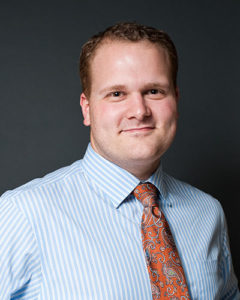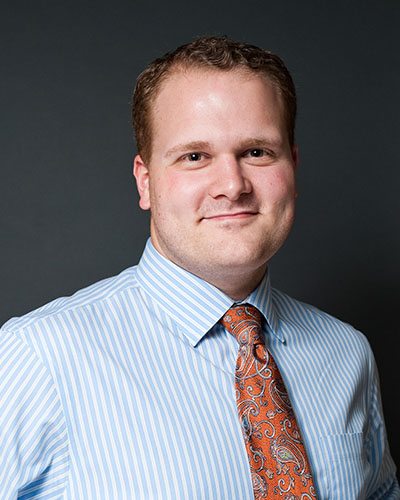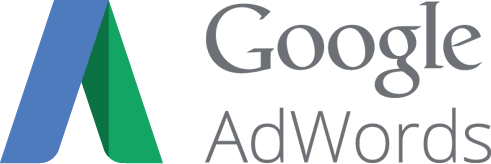Ep 59 Taylor Toce – Velo IT Group
Brad Post, Create the Movement, host
Taylor Toce, Velo IT Group, guest
Brad Post, Create the Movement, host: Welcome back to Create the Movement Podcast. This is Brad Post your host. I’m excited today to be speaking today to a new friend of  mine, Taylor Toce down in Dallas. He’s with Velo IT Group. Their website’s velomethod.com. Taylor, how are you doing today?
mine, Taylor Toce down in Dallas. He’s with Velo IT Group. Their website’s velomethod.com. Taylor, how are you doing today?
Taylor Toce, Velo IT, guest: Hey Brad, I’m doing great man. Thanks so much for having me.
Taylor Toce and Velo IT Group
BP: Great. I’m excited to hear your story. You’ve been doing this for a while now, you said. You’ve gone through some changes in the past two years, and it looks like you guys are just growing and growing and have some great growth over the past. Taylor, if you could, just share a little bit about your business and how you got started.
TT: Yeah, sure Brad. No problem – love to. You’re talking about my favorite topic so this an easy one.
BP: Right.
TT: I started the company about 11 years ago, now. At the time, I was a senior in high school.
BP: Wow.
TT: So, I started the company. I was a high school football player. I had a mild injury and unfortunately, though, it took me off the field so I had to do something. I had a unique opportunity at the high school I was at to start my company at that time. I had a couple of good friends, that are still good friends of mine, come beside me and they were my first couple of employees. We had a few accounts right off the bat that we able to get.
Fast forward: I’ve had mentors over time. I’ve had various different ups and downs as any entrepreneur does. But it’s been a great journey. We’ve had a lot of fun doing it and growing it and being involved in the managed IT services space.
There are tons of managed IT services companies in the space now. And so, we’ve seen it really evolve and consequently, we’ve have been able to create a very, very mature managed IT services offering that our clients get to enjoy.
Coming up through high school I managed the company and continued to grow it. I look back now and I realize that it was still just really a hobby when I was college. Maybe we did half a million revenues or something. We were busy, we were working. For a college kid making money, it didn’t take much for me to live back then. Once I graduated college I decided full-steam ahead on it. We grew it real rapidly for my first two or three years right out of college. Went from a hobby to in a very short period of time, in about 24 months, was a multi-million dollar company. We’ve continued to grow it since then, refining exactly what we do and staying focused on what our core competencies are.
As a managed IT services company I think a lot of people, “IT services – what is that? What even is managed IT services?” We really focused on being the outsourced IT department for companies that tend to have anywhere from 10 to 200 or 300 employees. That’s our sweet spot. That’s where we focus. That’s what we go after. We have a very successful group of clients that are in that realm. And our program that we’ve built that provides tremendous results to those clients.
It’s been a fun 11 years. But still today, I look at it, we’re a multi-million dollar corporation with clients in about 13 states, headquartered here in Dallas, I still feel like we’re just getting started. Especially, the move to Dallas two years ago has really forced us to step up our game a lot over the past two years. It’s exactly why we came here. That’s where we are today – continuing to move onward and upward.
BP: That’s exciting. You guys have locations in Dallas and also in Lafayette, Louisiana, correct?
TT: Yeah. I’m from Lafayette, Louisiana. That’s where I was born and raised. Our founding office was, and we still do, have a great team there in Louisiana as well as our team here in Dallas. It’s all one company. It’s all one team. And through the miracle of modern technology, we get to see and interact with one another daily. We serve a common client base. The majority of our clients are in Texas, Louisiana, and Oklahoma, but like I said, with the way IT works so much can be done remotely that we have clients in 13 states today.
BP: That’s exciting to hear. What would you say Taylor is the most exciting thing to you about your business right now?
TT: I believe I can speak on behalf of my entire team. We see our company having a strong business impact in our clients’ companies today. Our company is growing, obviously, as I’ve said. We’re adding team members and adding clients – that’s electric energy that we get to be a part of. It’s amazing.
What’s also really cool is we have this scientific approach that we call the Velo Method that we use to manage IT within our client companies. Our clients, when we apply this scientific, precise management of IT, they immediately start to generate from all of these efficiencies. Then we get to pump the energy that we have into our clients’ companies. We get to help them be more efficient and more effective with the resources they already have. And get to watch our clients really scale.
If you look at it from a macroeconomic perspective, our country is really in a state of economic growth, obviously. The part of our clients taking advantage of the growth that is front of them and the opportunities that are in front of them. That’s what’s really most exciting to us right now. We get to see our client base growing.
Being from south Louisiana and growing up in an oil-field family, I know all-too-well feast vs. famine. I think the move to Dallas has really diversified our client base. That said, we’re still heavily focused and very effective on our clients in the oil and gas community services industry.
We’ve been able to be a part of this economic cycle that we’re a part of. Our company’s benefiting, our clients are benefiting, and we’re really able to pump some serious efficiency into our clients’ companies. Just as exciting as it is for us to bring on a new team member here, I feel like we get just as excited when we see our clients bring on new team members as they scale. That’s what’s really fun to be a part of right now.
Velo’s Core Values
BP: That’s exciting. Yes, absolutely. I wanted to ask you: looking through your website you have your ‘Values’ listed – which is great. We’ve got what we call ‘Our Core Values’ as well. You have five it looks like: obsession, persistence, discipline, impact, and reward. Is that correct?
TT: Yes, that’s right. That’s absolutely correct.
BP: When did you guys start your core values? I know you’ve been in business for 11 years. We’re at the point where we have our core values but we have a smaller team. If you could, just explain a little on your values.
TT: Yeah, I love that question. It’s interesting, I think as companies scale, they all start as an idea. An entrepreneur that has a vision, that has an idea, and they want to execute upon that. But then, as you start to build, dare I say, a real company, you have employees, you have staff, and you have more clients and you cover more geography. And as you’re scaling you realize that culture isn’t just what the entrepreneur’s vision and how your team, your staff, attaches to that. Right? But it has to be something so much more intentional than that.
Culture is something that will, indeed, create itself. Most of the time I’ve seen that be a negative thing. And so, I really, strongly believe that an organization’s culture is dependent upon the leaders of that organization coming together, adopting a true, all-on-one-paper set of core values and driving those values into the organization every day.
You said it earlier, we didn’t have these core values Day One. We maybe jotted down some core values at some time, but they definitely weren’t these and they definitely weren’t pushed intentionally into the organization. Right?
We sat down, this was three years ago, maybe four years ago. Me, and my wife, who has worked for me and helped us build this business, and a few of our key team members sat down and said, “Okay, we want to get this core values thing figured out.” Because as we’re scaling, we’re realizing, “Why are we doing what we’re doing?” It’s one thing to do good work, but when you do good work on purpose for a purpose it’s so much more impactful.
BP: Right.
TT: We said, okay, we’ve got to adopt some values. We basically sat down and said, ‘obsession.’ We’re just completely fanatical about serving our clients. And we give our employees examples of this all the time. We’ll call people out for what we call ‘going too far.’ And that’s a good thing. We have permission in our organization to go too far. To do too much. To go the extra mile. In fact, it will be celebrated when you do so because we’re obsessed about our client’s success – back to what we said was exciting about in our organization today. I think a lot of that comes back to that we are obsessed with our clients being successful. Watching our clients grow and getting to play a part in that.
Same thing with ‘persistence.’ Coming through and saying persistence is something that I have to remind myself of all the time. As an entrepreneur, Brad you get this, it’s not always easy. Sometimes, it’s down right just a pain. It would be so easy to just throw in the towel sometimes. Sometimes, you put the towel aside, lean into it, and let’s roll. That’s what that persistence is about.
Having ‘discipline.’ This is something where in our industry we see a huge lack of discipline in the IT services space. IT services is a professional service. Just the same as a CPA’s service or something similar. The big difference is CPAs have licensure and regulation – it’s a much more mature industry. And, thus, there’s a lot more discipline. Any guy who knows how to work a computer can tomorrow start an IT services “company.” Right? It’s the discipline around building what we’re building, and having a process and being accountable. Discipline is what will set us apart from our competition. Both from a technical discipline and from a professional discipline.
‘Impact.’ This goes to we’ve to be impactful. If we’re not having a positive impact on those around us. It’s not just our clients. It’s also about our co-workers, and our families, and our friends, our community groups, our churches. We want to have an impact on those groups that we’re a part of. And we want to have this strong, positive impact.
Dovetailing into that: ‘reward.’ This is not a non-profit corporation. We’re here to make money. But the real thing is money without having something to do with it is entirely useless. A lot of the money we make around here we put right back into the company to help it continue to scale and grow. But some of that of money, what else can we do with that? We can reward our team members. We can reward our clients with special things. Reward our communities that we’re a part of with our profits. That’s really important.
BP: That’s awesome. I love it. It also says on your website ‘Built to Serve – At the Heart of Our Company Culture is a Concept of Servant Leadership.’ That really stood out to me. I really liked that as well.
TT: That’s very true.
The Best Business Advice Received
BP: Taylor, moving on, what would you say is the best business advice that you’ve received?
TT: That’s a great question. I mentioned earlier I started this business as senior in high school. Looking back at it now I had no idea what I was doing. That’s the only reason I was able to do it. I had no fears. I had no perspective.
When I did that, I applied for a scholarship – it was the McKelvey Entrepreneurial Scholarship. It was a scholarship foundation that founded by the late Andrew McKelvey who was the founder and CEO of monster.com back in its heyday. I had a very fortunate and unique opportunity to connect personally with Andy for the year before he passed away. Andy had built, at its peak before he left for health reasons when he left I think the company had a market cap of five and a half billion dollars. This is a guy who’s a multi-billionaire – a self-made man. From purely a business perspective, he knew how to build and how to scale an organization. What was interesting was one thing he always told me was, “Taylor, the secret to success is timing.”
BP: That’s good.
TT: And at the time, as a young kid, I was like, “Okay, you’ve got to be in the right place at the right time.” I looked at him and was like, “Yeah, man, you had a dot com company in the late nineties that was actually a real company, not just a website. With actual revenues and profits.” He goes through dot-com boom and then bust. But even after the bubble burst he still has a very profitable, reputable company and maintains it’s value. I’m like, “It’s easy for you to you to say because look at your timing.” But then I realized what he was saying. And what he was saying is that the secret to success is timing – it’s not just about chance, coincidence. Right? It’s about charting your course, being aware of your marketplace, and putting your ship in the right seas at the right time. Right?
I think that’s something that any entrepreneur can do. Right? An entrepreneur that’s passionate and understanding and aware of the industry that they’re in, they can put their company, their teams in the right place at the right time to take advantage of the opportunities that are in front of them.
The secret to success is timing. That was one thing that Andy told me many times over several different calls and face-to-face interactions that we had and it’s always stuck with me. It was impactful.
BP: That’s great. And what a wonderful opportunity to be mentored by someone like him.
TT: Yeah, no doubt. It was certainly a unique opportunity that I’ll never forget.
Taylor’s Recommended Books
BP: That’s awesome. One thing you mentioned before we started the podcast, you take your leadership team through a book, is that monthly, quarterly? Can you share a little bit about that – some of the books that you recommend also to our listeners?
TT: Yeah. I think that reading is key. As an entrepreneur, as a CEO, as a business leader, you’ve got to constantly quench your thirst knowledge. I think that one thing that has set me apart from some of my peers, is that my mind is never full. My mind is always thirsty for more and always looking to learn something new.
Over the years I’ve read tons of books. I’m in my office right now in downtown Dallas. I’m looking at my bookshelf and I’ve some of my favorite books here. I’ve got bookshelves at home full of books. I love to read and to learn.
To our leadership team, something that we just started here is that we’ve, kind of a little bit more formally as our company has scaled. Our company, still today, is very flat. Right? I’m the leader. Most people in the organization report to me. So, as we’re scaling we’re starting to figure this out and who’s going to be in these leadership roles. We’ve somewhat formally started to assemble our leadership team. We’re going through Verne Harnish’s book ‘Scaling Up’ the 2.0 of Rockefeller Habits. Just a great book. An exercise, really in scaling an organization. The homework from this book will take us years and years to complete. The discipline that we will have to develop in order to achieve these Rockefeller habits, if you will, will really be a challenge that we’ve put in front of myself and our entire leadership team. Having a lot of books to go through is great and you want to learn, but you want to be challenged. Right?
At the same time, I have another mentor. Again, I had a couple of face-to-face interactions with him and he was a client of mine of a brief period. It was Grant Cardone. Grant Cardone is a big sales coach.
BP: Yeah! That’s exciting.
TT: You want to about exciting, Grant’s got some energy.
BP: Yeah, he does.
TT: Grant’s awesome. Grant is awesome. Grant is indeed the real deal as he’s doing his little Instagram thing right now – his social media callouts. Grant is the real deal. I’ve seen it first hand over a period of a couple of years that I got to work with him and his team.
So, I’ve read all of Grant’s books. But I will say that his book ‘10X Rule’ about ultimately if I could put it into one sentence it’s about taking massive action in order to achieve the success that we all deserve. I think that’s huge. Right? Indeed, you have to take massive action to achieve success. All of us, no matter what industry you’re in, it’s a very competitive marketplace. Right?
If you look historically there used to be companies that just completely dominated marketplaces. You still have that today for sure, but you have less and less and less of it. Whether it’s IT services or you’re Grant Cardone doing sales coaching. Yeah, sure, Grant’s a dominant force in the sales coaching/training space and does a great job at it. In my opinion, the best. Maybe I’m a little biased, but I think he’s the best. But you look at Grant, how many people are doing sales training? Right? Tons of them. People go work for Grant and then they go try to do sales training on their own because he’s so good at it. Right? There’s so many people that do sales training.
So, we’re doing ‘Scaling Up’ right now as the leadership team. ‘10X Rule’ is awesome. And all of Grant’s books are really great. There’s ‘Good to Great’ by Jim Collins – great book. I think if you read that and then you go into your study of ‘Scaling Up’ as an entrepreneur, if you can develop the principles and the disciplines in those books, throw in Grant Cardone’s massive action mentality, super electric energy that Grant provides, man, get out of the way because you’re going to build a hell of a company.
Podcasts and Leadership
BP: That’s good stuff. What about podcasts? I know you said you have a few that you listen to regularly.
TT: It’s interesting, I’ve never been a big podcasting guy. But I will say is that I’m always pleasantly surprised when I look into podcasts. So, as an entrepreneur, I’ve been doing this for 11 years. I’m building a business of some more serious substance. As a consequence, I’m starting to build my own personal [] sheet. Right? As a result, I’m thinking, “Okay, I’m starting to make some money, where should I invest it?” A lot of the money that I make is going back into building the company. Right?
But then, I might want to do other things with my money, right? So, I started thinking a lot about real estate investing and all the different types of real estate investing. ‘BiggerPockets’ is a podcast that I listen to. A lot of their stuff is about real estate investing and things of that nature and they’ve got a great following. That’s a pretty good podcast.
I’m always looking for leadership advice because I think that any entrepreneur, as they scale a company, they’re going to run into certain spots where the most important thing that they can do is lead their team. It doesn’t matter if you started a business as a marketing guru, or a IT technician, or a plumber, it doesn’t matter. If you scale your company it’s no longer your plumbing skills, your marketing prowess, or your IT technical ability that’s going to scale your company. It’s you as a leader that’s going to scale your company. So, I’m always thirsty to learn more about leadership.
Interestingly enough, my pastor here in Dallas at the church that my wife and kids and I attend – Fellowship Church. Ed Young
BP: Ed Young, oh yeah. I’ve been to his C3 Conferences in the past.
TT: C3 Conference is amazing. C3 is unbelievable. I went to C3 this past year. In fact, I volunteer there on the production team. I think that’s one of the most rewarding things I do because I get to learn from Ed every weekend. At events like C3 I get to learn from the other leaders that he brings in.
But what I’ve learned, too, is that Ed has done a podcast called ‘Leadership Uncensored.’ It was a podcast he did maybe somewhat aimed at church leaders that he mentors. But he has done this podcast and I realize, and if you ever go as a business leader, if you ever have the opportunity to go to C3 conference, it’s worth it. It’s worth the time that you’ll spend going to the conference. And yes, it’s church leaders talking about church leadership. But what you’ll learn real quick is that all the issues that they’re dealing with in church leadership are the exact same issues that we deal with running a business outside of the church.
What’s interesting is that their perspective is different from the perspective that we get in the secular world, in the corporate world. In the corporate world, there’s a lot of perspective and there’s a lot of people out there: influencers, bloggers, podcasts, books, whatever that are going to tell you about leadership. But, I’ve found it really refreshing and extremely effective to learn leadership principles from places that aren’t so obvious. Like the church, for example. And there are probably many other examples. Learning leadership principles there that I can immediately turn around and apply in my business that’s already paid massive massive dividends.
BP: That’s great. I definitely highly recommend the C3 Conference as well.
TT: Absolutely. I would go as far to say whether you’re a believer, a non-believer, whether you are involved in church or never want to be involved in church, it’s a great environment to go and learn about leadership.
BP: Yup. And just the things that they do are so creative and cutting edge.
TT: You can’t help but stimulate your mind there. It’s unbelievable.
BP: Exactly. Taylor, It’s been a pleasure. Is there anything we missed that you want to share with our listeners?
TT: I could go on and on for hours and hours about this and this and the things that we’re working on and about entrepreneurship. It’s definitely a calling that has been placed on me to lead organizations and lead companies and build these things. It’s just so incredibly rewarding. Right? It’s not necessarily about money, but that’s certainly our measuring stick in any corporate industry. Right? That’s our measuring stick, but man, the impact that we have on people’s lives. I understand that I think we have a lot of entrepreneurs and business leaders that listen to your podcast.
I would just say that as a young entrepreneur what I have learned over the past 10 years, 11 years, is invest in your people. Right? Invest in your team. I think that’s the biggest thing. It’s one thing to say that, it’s a whole nother thing to think that you’re doing that, but it’s a whole nother thing to really put that into action and invest in your people.
BP: Awesome. Taylor, thank you again. You can find Taylor Toce at velomethod.com. Anywhere else you’d encourage people, Taylor, to find you on social media or anything like that?
TT: I’m on Instagram @taylortoce. Facebook Taylor Toce as well. You can definitely follow me on those outlets.
BP: Taylor, thanks again for being on and join us for our next edition of Create the Movement Podcast.











